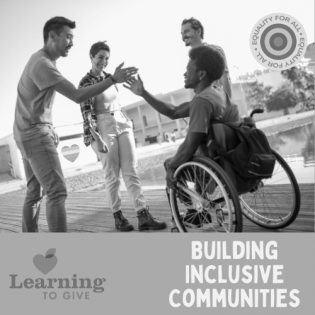Young people identify environmental issues and ways to use their time, talent, or treasure to make a difference. They compare the mission statements of different environmental organizations and write their own personal mission statement.
Filter by subjects:
Filter by grades:
Filter by audience:
Filter by issue area:
Filter by content type:
Filter by resource type:
resource search
The learners define philanthropy and relate it to environmental stewardship. They compare mission statements from environmental organizations and write their own personal mission statement. They self-select a group to work with to plan and implement an environmental service...
This lesson raises awareness of water quality and responsible management of water resources around the world. We explore the issue of safe water and the responsibilities of a global citizen to assure all people have safe drinking water.
The learners review the water cycle and come to an understanding about the need to sustain the quality of the world's water for the common good.
This lesson raises the learners’ awareness of water quality, water treatment, and responsible management of water resources around the world. They write persuasive pieces to share their knowledge of issues around safe drinking water.
This toolkit guides youth, educators, group leaders, families, and community groups as they facilitate building inclusive communities and prepare to take action. Contents:
Participants explore how animals are used in sports and entertainment. They explore the concepts of animal welfare and animal cruelty. The learners articulate personal opinions concerning the use of animals for human entertainment.
Discuss and evaluate personal beliefs and attitudes about the treatment of animals, especially applied to sports and entertainment. We explore how laws and beliefs concerning animal welfare affect personal responses to animal treatment.
Learners identify ways to use advocacy to promote change.
The learners explore the role of animals in sports and entertainment. They differentiate between animal cruelty and the humane treatment of animals.
